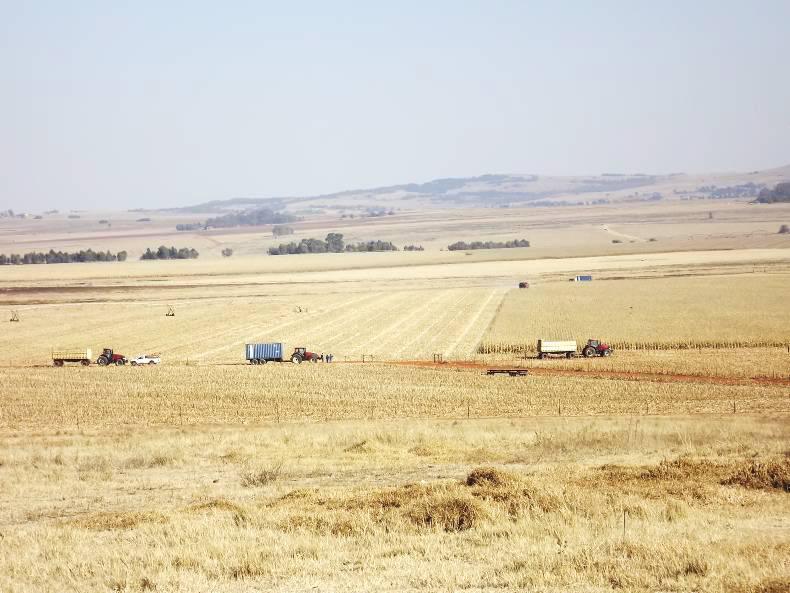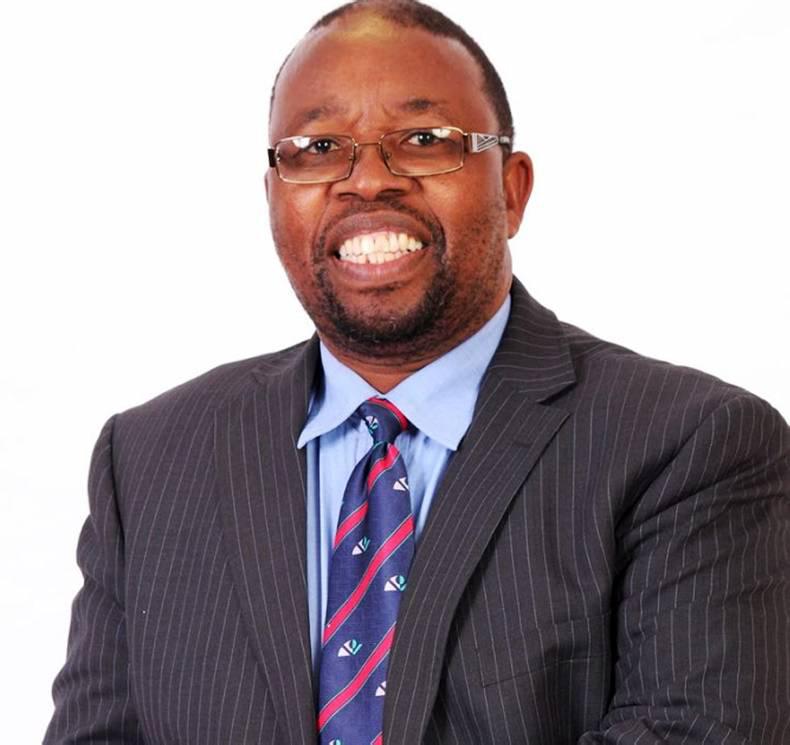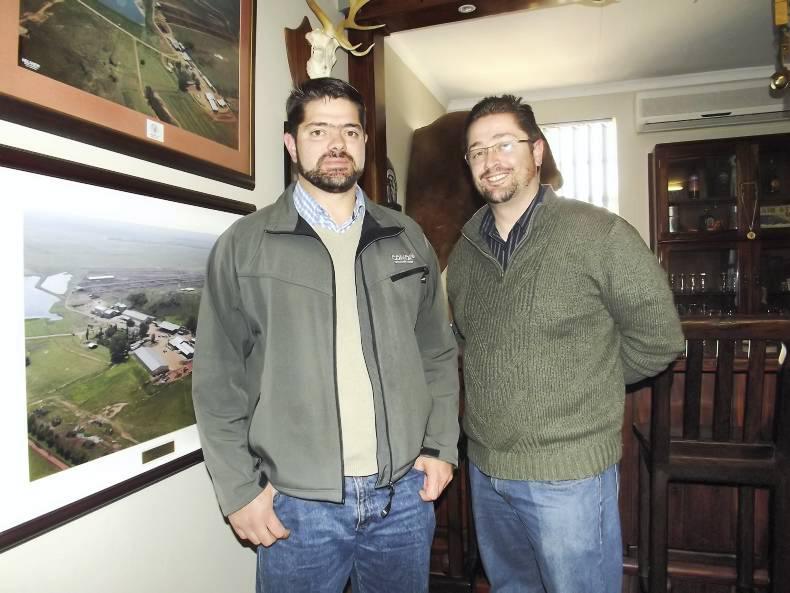
LOYALTY CODE:
The paper code cannot be redeemed when browsing in private/incognito mode. Please go to a normal browser window and enter the code there

LOYALTY CODE:
The paper code cannot be redeemed when browsing in private/incognito mode. Please go to a normal browser window and enter the code there
This content is copyright protected!
However, if you would like to share the information in this article, you may use the headline, summary and link below:
Title: Land reform in South Africa highlights social divide
Land reform has been ongoing in South Africa since 1994, but there has been little achieved in 20 years. Aisling Hussey reports.
https://www.farmersjournal.ie/land-reform-in-south-africa-highlights-social-divide-186257

ENTER YOUR LOYALTY CODE:
The reader loyalty code gives you full access to the site from when you enter it until the following Wednesday at 9pm. Find your unique code on the back page of Irish Country Living every week.

CODE ACCEPTED

You have full access to farmersjournal.ie on this browser until 9pm next Wednesday. Thank you for buying the paper and using the code.

CODE NOT VALID
Please try again or contact us.
For assistance, call 01 4199525
or email subs@farmersjournal.ie
Sign in

Incorrect details
Please try again or reset password
If would like to speak to a member of
our team, please call us on 01-4199525
Reset
password
Please enter your email address and we
will send you a link to reset your password

If would like to speak to a member of
our team, please call us on 01-4199525
Link sent to
your email
address
![]()
We have sent an email to your address.
Please click on the link in this email to reset
your password. If you can't find it in your inbox,
please check your spam folder. If you can't
find the email, please call us on 01-4199525.
![]()
Email address
not recognised
There is no subscription associated with this email
address. To read our subscriber-only content.
please subscribe or use the reader loyalty code.
If would like to speak to a member of
our team, please call us on 01-4199525
 This is a subscriber-only article
This is a subscriber-only article
Update Success !
Farming in South Africa is split between two groups: large-scale commercial producers and smallholder/subsistence farmers. The former accounts for around 50,000 commercial operations owned by white farmers. These farms currently occupy 87% of farmland in South Africa. The latter group, made up of three million black farmers, are left with the remainder.
With such a large amount of land still concentrated in the hands of white farmers, land reform is the hot topic in South Africa. The reform process, which has been ongoing since 1994, aims to redistribute land to the black majority in an attempt to correct wrongs of the past.
Such mistakes include the Native Lands Act of 1913 which prohibited black people from establishing large farms, and the forceful seizure of land from farmers. The reform is also attempting to give more power to farm workers.
Similar to the Land Commission in Ireland, South Africa’s land reform process has caused controversy on both sides. Unlike here, however, land ownership in South Africa is based on race. This makes it a very sensitive issue in a country that is still healing, more than 20 years after the apartheid racial segregation system was brought to an end.
Land reform began on the “willing seller, willing buyer” principle, with the government purchasing farms and redistributing among beneficiaries. This model proved unsuccessful, and the government is now looking at introducing land ceilings and seizing the excess for redistribution. According to these proposals, 1,000ha is a small farm; 2,500ha is a medium and 5,000ha is large.
In a nutshell, the government is attempting to speed up land reform without damaging reconciliation and production, with South Africa practically self-sufficient and a net exporter of food. Also, with local elections due in 2016, the African National Council (ANC) is thinking about political gains through its mainly black voter base.
Farming groups
 Aggrey Mahanjana (right) is the managing director of the National Emergent Red Meat Producers’ Organisation (NERPO) and secretary general of the African Farmers of South Africa (AFASA), both of which represent the interests of smallholder and subsistence black farmers.
Aggrey Mahanjana (right) is the managing director of the National Emergent Red Meat Producers’ Organisation (NERPO) and secretary general of the African Farmers of South Africa (AFASA), both of which represent the interests of smallholder and subsistence black farmers.
“The only weakness about land reform is that it’s taking too long,” he told the Irish Farmers Journal.
“Beneficiaries are becoming impatient and it is also affecting those who have land. There is so much uncertainty and no one knows what new plan the government will come up with.
“When the land was taken from us, there was no negotiation. A bulldozer came and you were told to move, collect your things. The ANC is not doing land reform that way. It is trying to look for a better solution where there isn’t a reduction in production.”
Mahanjana believes government is thinking about the best interest of farmers.
“If government didn’t care about production, they would have adopted the Zimbabwean model of land reform, which was a land grab.”
However, he acknowledges that there is a political element involved.
“The government wants to ensure that white farmers are not offended, but trying to ensure that black people, who they rely on for votes, are looked after. That said, everyone is South Africa, including white farmers, agrees that there must be land reform. There’s unity, in principle,” he said.
Meanwhile, Agri SA, the representative body for the commercial sector, argues that many of those claiming land are not interested in farming.
 Thabi Nkosi (left), senior economist with Agri SA, explained: “In the beginning, land was given to you through the restitution process even if you didn’t want to farm. That’s the challenge – there’s no clear assessment and it seems that newly settled farmers are not getting support,” she said.
Thabi Nkosi (left), senior economist with Agri SA, explained: “In the beginning, land was given to you through the restitution process even if you didn’t want to farm. That’s the challenge – there’s no clear assessment and it seems that newly settled farmers are not getting support,” she said.
“There’s a lot of distrust between all the groups. That’s the story with our land reform and why we haven’t made any progress.”
 Johan Pienaar (right), head of Agri SA, is more blunt in his criticism of the land reform process.
Johan Pienaar (right), head of Agri SA, is more blunt in his criticism of the land reform process.
“I can understand where the government is coming from. They understand if we destroy commercial agricultural then we’re in the same boat as the rest of Africa and that they will also destroy their political base. They are also between a rock and a hard place, trying to come up with a solution,” he said.
“There is a local government election coming up in 2016 and the ANC need to make promises as they are not performing that well. The government is facing an uphill battle and all they can promise is related to land.”
Farmer perspective
Tony Da Costa is a third-generation South African who farms Manjoh Ranch with his father, Manuel, and brother, Andre (photo below, with Andre). Like most commercial farms, they have a mixed enterprise on 5,500ha, growing maize and soybeans as well as running a feedlot slaughtering 3,000 animals per month. Crops are processed on-farm and sold through their company, Manjoh Foods. All large farms in South Africa have workers, and Manjoh Ranch currently employs 270 people across all businesses.

Land reform is causing difficulties for the Da Costas. After running from 1994 to 1998, the land claims process was reopened in 2014 for a further five years, which means their farm could be risk until 2019. Any farm with a claim is unable to access credit or expand until the case is resolved.
“Land reform is one of the difficult issues at the moment. It puts a big dampener on our plan for the future,” said Tony. “Do we expand, don’t we expand? Will our land be taken away or not? You never know. It becomes quite a challenge when it comes to investment.”
“I believe land reform needs to happen, but it has to be done responsibly. It could become a food security issue, but land reform is treated like a political game.”
Due to lack of knowledge transfer between black and white farmers, despite mentoring programmes, some 50% of farms that have been passed on are failing. Da Costa believes this needs to be addressed before land is passed on.
“I’m not saying my farm is the best. There are brilliant black farmers out there, they just haven’t been given the opportunity that white farmers had years ago,” he said.
“The root cause of all problems is lack of education and with that comes other social issues. If we didn’t have apartheid in the 1940s, we would be a happy, jolly nation like Brazil, and we wouldn’t have these problems.”
Read part one of our South Africa series and watch the video:
South Africa: A diverse beef industry with potential
SHARING OPTIONS: